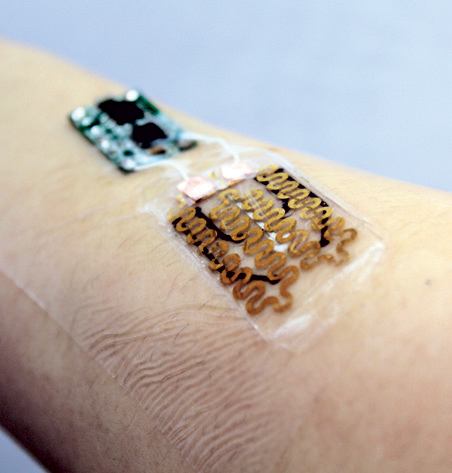
A new type of smart bandage is being developed that may help providers track and treat wounds more efficiently.
The bandage has been under development for more than five years, Sameer Sonkusale, Ph.D., professor of electrical and computer engineering at Tufts University’s School of Engineering and corresponding co-author for the study, told McKnight’s. While the next step is to test the bandage in a clinical context, his team’s latest research shows promise for the smart system over traditional dressings. Since it has pH and temperature sensors, along with antibiotic drug delivery, the bandage offers hope for hard-to-treat wounds.
“Bed sores and chronic wounds are a big problem. Sensors that are built in can mitigate the effect of these chronic wounds, and could reduce the incidences,” he said. For existing wounds, “you’d be able to intervene at the right time.”
Components of the bandage include a microprocessor that reads data from the sensors and can release drugs by heating the gel, and an attachment to form a flexible bandage less than 3 mm thick. Sonkusale’s team also is focused on using low-cost components, except for the microprocessor, which can be reused.
It’s estimated that 15% of Medicare beneficiaries require treatment for at least one type of chronic wound, with an estimated cost of $28 billion.
Results were published in July in the journal Small.
From the August 01, 2018 Issue of McKnight's Long-Term Care News




